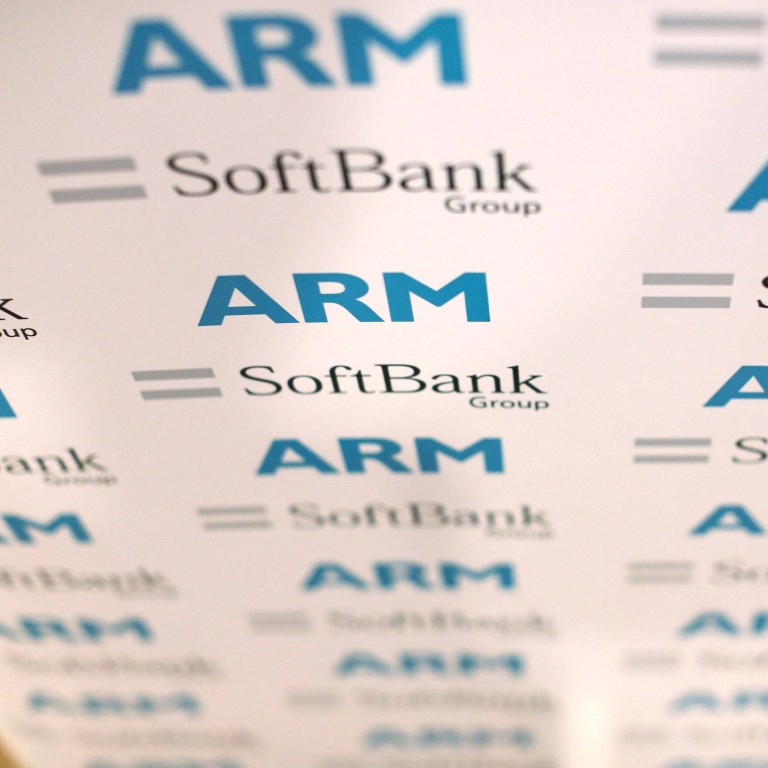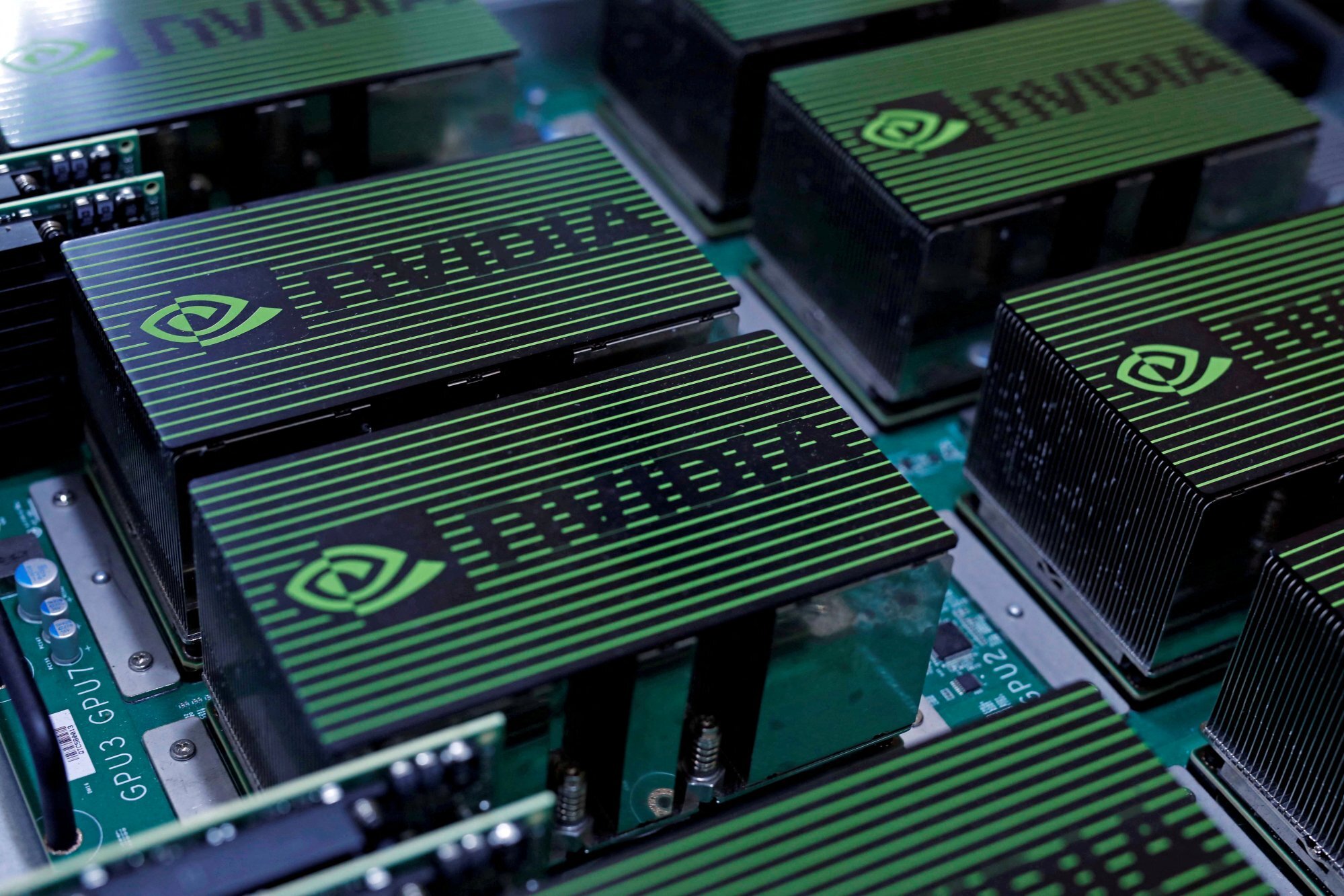
SoftBank’s plan to list Arm after failed Nvidia deal under a cloud amid China boardroom dispute
- In a boardroom battle that proved a spectacle for the chip industry, Arm has been trying to remove Allen Wu as Arm China CEO and chairman since June 2020
- Exclusion of Arm China could slash more than 20 per cent off the IPO’s valuation, given the Chinese operation’s contribution and future growth potential
A lingering boardroom tussle between Arm and its Chinese joint venture is casting a shadow over SoftBank’s plan to list the British chip IP and design firm after a proposed US$40 billion deal with Nvidia fell apart amid regulatory pressure.
Analysts said Arm’s IPO plan could hit a snag if issues around control of Arm China, which contributes one fifth of worldwide revenues, cannot be resolved.
In a boardroom battle that proved a spectacle for the chip industry, Arm has been trying to remove Wu from his dual position at Arm China since June 2020. Wu ignored Arm China’s boardroom vote of 7 to 1 to oust him, and he retains control of the company’s day-to-day operations through his possession of the corporate seals and other leverage.
China tech firm develops controversial resignation forecasting system
Arm China has been promoting the fact that it is an independent entity. In public remarks made in December 2021, Wu said Arm China was a joint venture controlled by Chinese shareholders with independent operation. The company’s website says its mission is to “serve China’s technology industry … and empower China’s local semiconductor ecosystem”.
Arm’s chief financial officer Inder Singh told a media briefing last week that the problem at the Chinese joint venture needed to be resolved regardless of the IPO.
“That would still be something we would be focused on,” he said.
The dispute is making it impossible for Arm to audit Arm China’s books, with resistance from “a member of the senior management in Arm China”, according to Arm’s annual financial report for the financial year ended March 31, 2021.
Intel nears US$5 billion acquisition of Tower Semiconductor
Analysts said this could be a big problem for Softbank’s plan to list Arm.
“I don’t think investors will be enthusiastic about the IPO if there is significant uncertainty regarding Arm China,” said Mio Kato, founder of LightStream Research. “Because of the dispute, there is little accounting transparency, so there is a risk of restatement of financials once the dispute is over.”
Exclusion of Arm China could slash more than 20 per cent off the IPO’s valuation, given the Chinese operation’s contribution and future growth potential, Kato said.
In 2019, Arm China’s revenue grew nearly 50 per cent year on year, accounting for 27 per cent of Arm’s global IP licensing revenue, according to an Arm China spokesman.
At the same time, both sides have struck a conciliatory tone since the IPO plan was announced last week.
“We support Arm’s choice to go public,” the spokesman told the South China Morning Post. “We hope to resolve the disputes soon.”
In a statement issued on Monday, a spokeswoman for the parent company said, “Arm is working with all key parties to resolve the disputes relating to Arm China. We are confident a resolution will be reached.”
While Arm, as the major shareholder of the joint venture, could eventually remove Wu and regain control of the company by taking it to court, the legal battles could take months or even longer, according to You Yunting, senior partner at Shanghai Debund Law Firm Offices.
Leading China chip company added to US trade watch list
That is because a court battle would involve overseas entities such as Arm Ltd and Amber Leading, a Hong Kong registered company that holds a 36 per cent stake, making it the second-largest shareholder of Arm China.
Kato said that Wu has the upper hand in the stand off. “The problem for Arm and SoftBank is that I don’t see any reason why Wu needs to quickly change the status quo, but Softbank clearly wants to list Arm quickly. So the negotiating leverage is in Wu’s corner,” Kato said.
Other shareholders include private equity firms owned by the Meishan Bonded Zone in the Chinese city of Ningbo, holding 13.3 per cent, Hong Kong-registered TL1016 Technology Ltd with 1.2 per cent, and a management partnership in the Meishan bonded zone that holds a 0.47 per cent stake, according to public corporate registry information.

Arm China could play a significant role in helping China’s drive to achieve more self-reliance in the semiconductor sector. In chip design software and intellectual property (IP), China’s dependency on foreign technology is even greater than in chip fabrication itself, and it would have few substitutes if foreign access were cut.
Chinese concern about losing access to Arm’s IP mounted after Nvidia announced in September 2020 that it had offered Softbank US$40 billion for Arm, but the deal was called off this month amid regulatory resistance.
Chip industry executives and academics in China had “opposed the deal as they fretted that Nvidia would change Arm’s IP licensing scheme, or Arm would end up in the hands of a US firm”, said Zhang Ya, an analyst with Shanghai-based semiconductor consultancy ICWise.
Arm China was founded in April 2018, when SoftBank agreed to sell a 51 per cent stake of its fully-owned Arm China subsidiary to a Chinese consortium for US$775.2 million.


